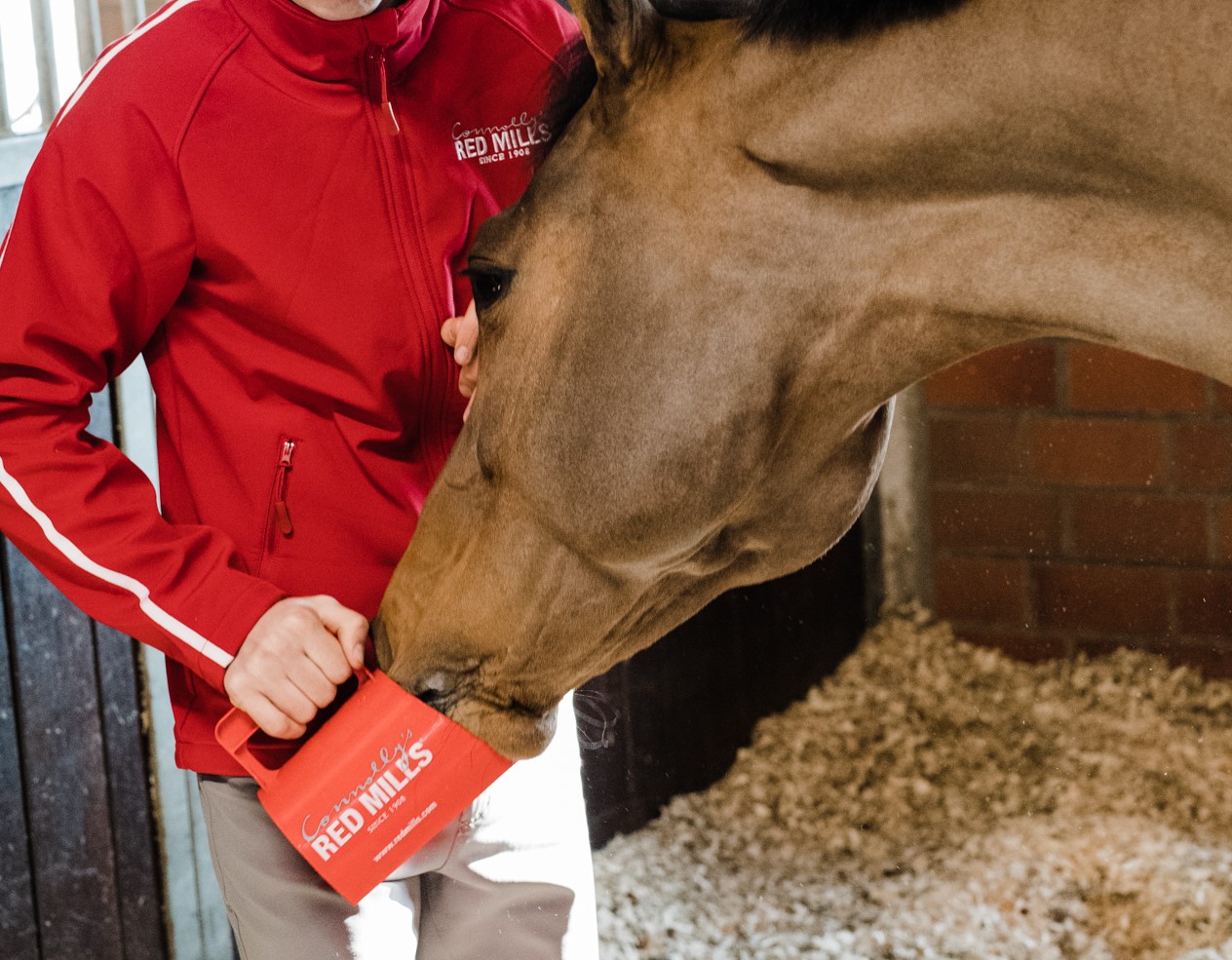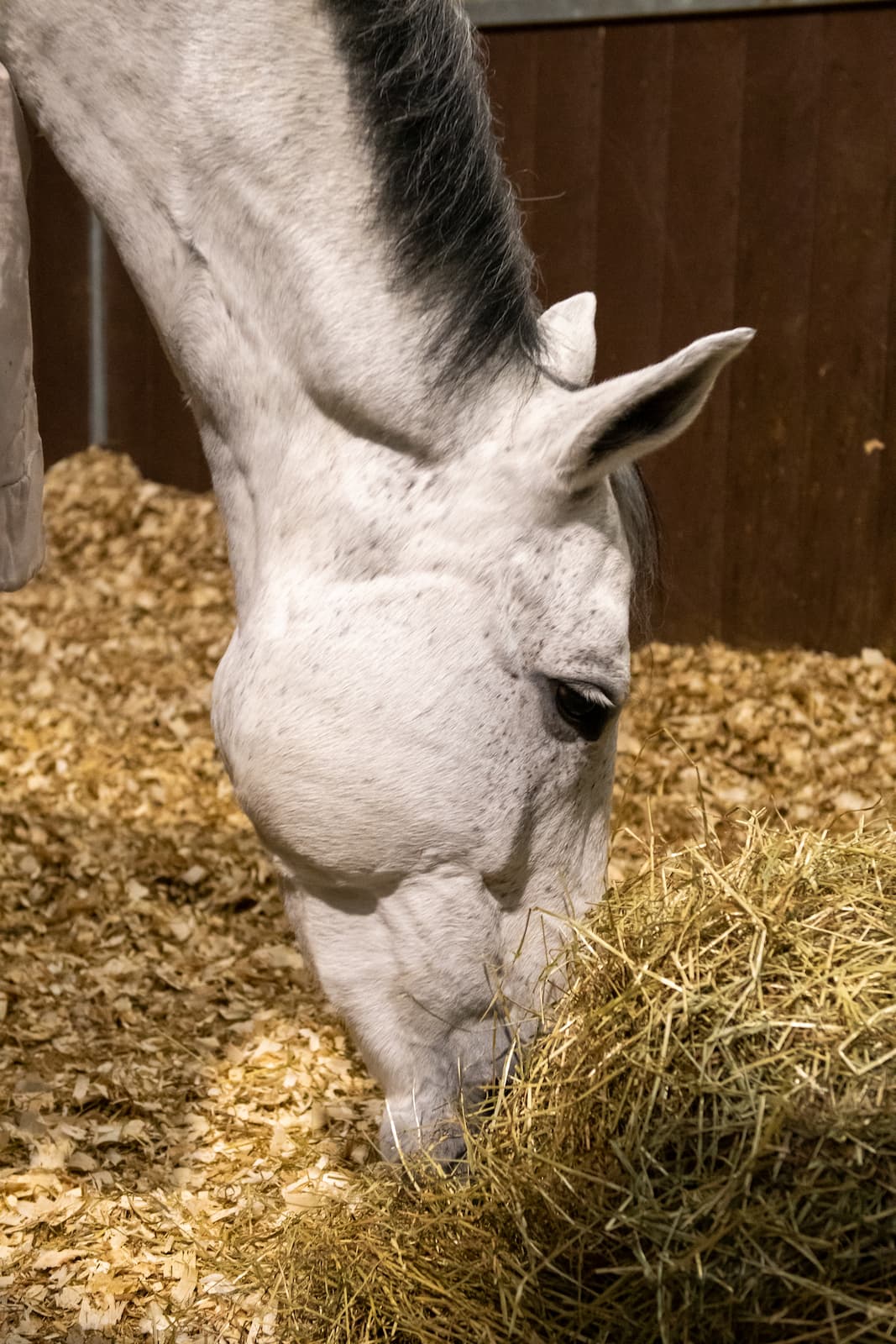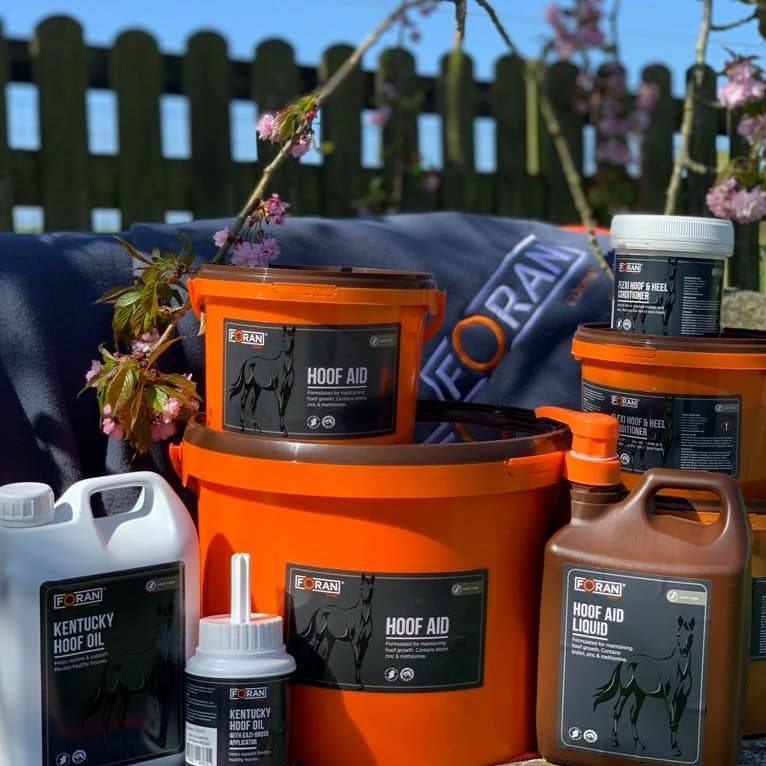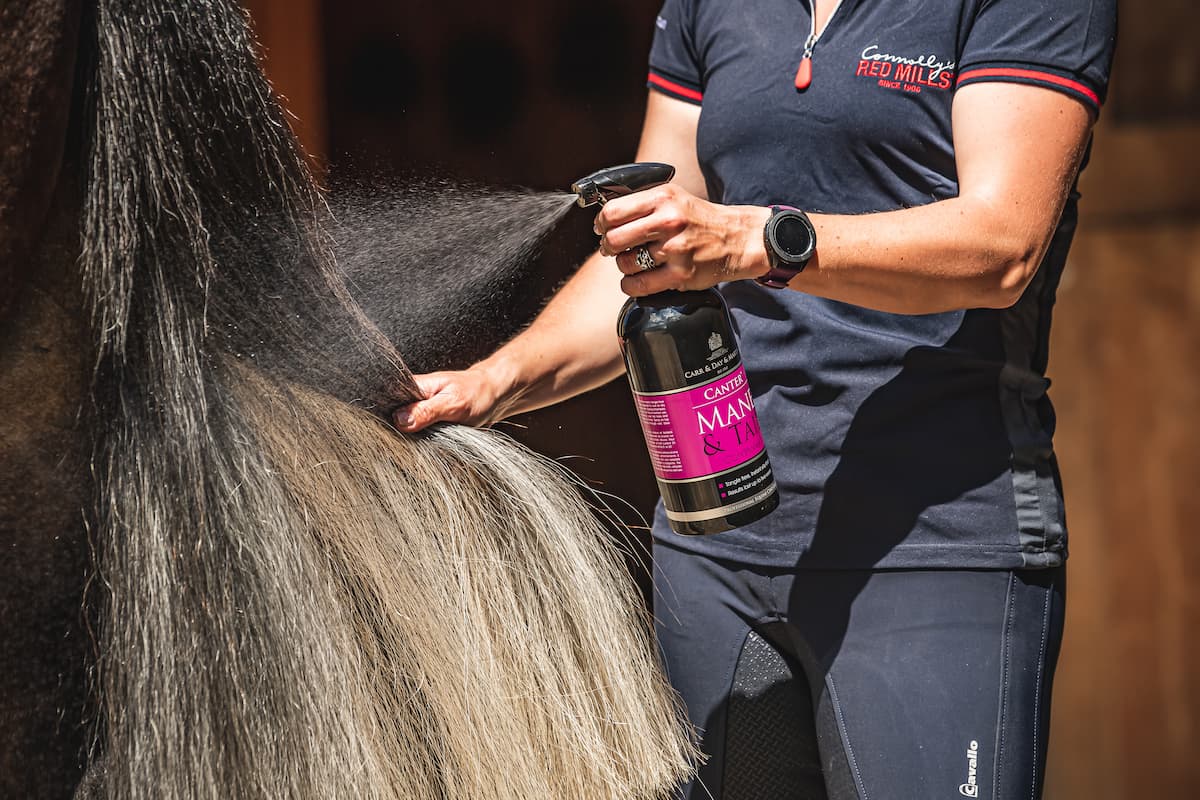Jun, 2020
Horses will naturally gain weight in the spring and summer due to the increased growth and quality of grazing. As a result many horses, particularly native types, can enter winter with significant fat reserves. During the colder winter months, they then use this excess fat as an energy store, which can be drawn upon to help them cope with the harsher weather and poorer quality grazing. This will mean that they naturally lose a little weight over the colder months, allowing them to safely regain some weight the following spring.
The horse’s metabolism is designed around this natural cycle of weight gain and weight loss. However, in a more managed environment horses are less likely to lose this weight, as often owners will increase their feed during the winter months. In turn, by the following spring the horse has not lost weight through the winter and then continues to gain weight with the spring grass, resulting in them being overweight and increasing the risk of problems such as laminitis.
There are many factors to consider when assessing to what extent a horse can withstand the change in season and how best to feed them during the colder months. So, what do you need to think about when deciding what hard feed you should give your horse in winter?
Assessing your horse’s weight and condition regularly during the winter is extremely important. You can do this by assessing their body condition score (BCS) regularly. If your horse is losing too much weight then you can look into changing the diet to suit your horse’s needs. On the other hand, if your horse is a “good-doer” winter can be the ideal time to allow their condition to drop off naturally, meaning that they can safely gain a little weight the following spring.
Find out how to monitor your horse’s body condition score here.
Winter brings short days, long nights, and cold weather. Although some horses will remain in full work, or even have increased workloads, many of us find that we simply cannot exercise them as much or as frequently. As a result, their requirement for hard feed is unlikely to change or they may even need less. Remember too, that if your horse is stabled, they are likely to be burning fewer calories.
The amount of shelter your horse has from the elements will also affect the quantity of hard feed they need. Horses that live out should have at least some protection from hard weather conditions. This could be natural such as trees or a hedge line or if needed a 3-sided field shelter. Some horses will also need to be rugged, not only does this keep them warm but it also can help minimise the risk of rain scald and keep them, relatively, clean! However, not rugging or only using a light weight rug can help an overweight horse to lose weight naturally. Try not to overgroom un-rugged horses as this may strip the coat of the natural oils and reduce its waterproofing abilities.
Forage is the most important part of your horse’s diet, whether it is fresh (i.e. grass) or preserved (i.e. haylage or hay), it’s essential that your horse receives adequate levels in their diet. This not only provides them with an important source of nutrients, helps keep their digestive system functioning effectively and promotes psychological well-being. Interestingly, it also helps keep your horse warm, as the process of fibre fermentation in the hindgut generates heat. Preferably, forage should be offered on a ‘free-choice’ basis, however if restricted (e.g. for a horse that needs to lose weight) this should never be to less than 1.5% of bodyweight (dry matter), unless under veterinary supervision, as doing so increases the risk of digestive and behavioural issues.
Our research has shown that even the best quality forage will not provide your horse with adequate level of several essential micronutrients, therefore these must be provided in the ‘hard feed’. The most suitable hard feed or supplement for your horse will depend on their health, body condition and workload. Horses prone to unwanted weight loss during the winter will benefit from a calorific feed, whilst for those that need to lose weight, all that may be required is a high specification, nutrient-dense feed balancer such as Connolly’s RED MILLS PerformaCare Balancer or a broad-spectrum vitamin and mineral supplement, such as Foran Equine Chevinal, mixed with chaff.
Read more about feeding for condition here or for expert advice on feeding the good-doer find out more here.
The bottom line is that each horse should be treated as an individual and now is an excellent time to assess your horse’s winter feeding plan. Whether you’re worried about weight loss or want to use this winter to kick-start a weight loss regime contact our expert nutritional team for advice.
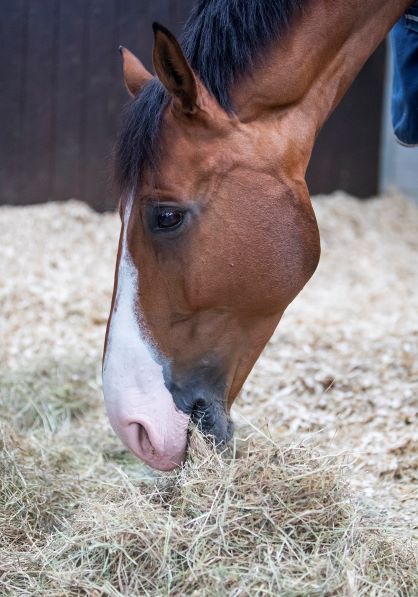
تواصل مع فريق المبيعات عبر الواتساب أو البريد الإلكتروني

نيكولا جوميرايس
المدير التجاري للمجموعة في منطقة الخليج العربي
يشغل نيكولاس جوميرايس، المقيم في دولة الإمارات العربية المتحدة، منصب المدير التجاري لمجموعة كونوليز ريدميلز التي تضم مكملات فوران إيكواين وأعلاف كونوليز ريدميلز للخيول في منطقة الخليج العربي. يسافر نيكولاس بانتظام عبر منطقة الخليج.

دومينيك بلاي
المسؤول التنفيذي للعمليات التجارية والفنية في منطقة الخليج العربي
تواصل مع دومينيك، المدير التجاري لشركة فوران إيكواين الذي يقيم في منطقة الخليج العربي ويقدم الدعم الفني لمكملات فوران إيكواين وأعلاف كونوليز ريدميلز.






